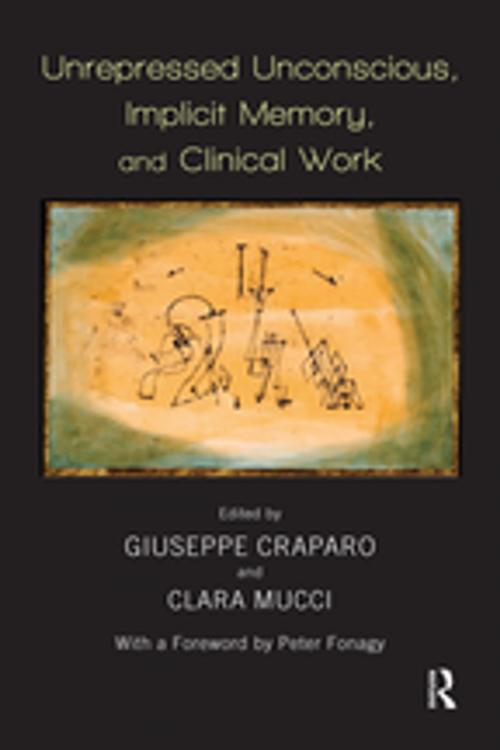Unrepressed Unconscious, Implicit Memory, and Clinical Work
Nonfiction, Health & Well Being, Psychology, Mental Health| Author: | ISBN: | 9780429923623 | |
| Publisher: | Taylor and Francis | Publication: | March 22, 2018 |
| Imprint: | Routledge | Language: | English |
| Author: | |
| ISBN: | 9780429923623 |
| Publisher: | Taylor and Francis |
| Publication: | March 22, 2018 |
| Imprint: | Routledge |
| Language: | English |
Unrepressed Unconscious, Implicit Memory, and Clinical Work analyses the psychological and neurobiological characteristics of what nowadays goes under the name of "unrepressed unconscious", as opposed to Freud's earlier version of a kind of "repressed unconscious" encountered and described initially in his work with hysterical patients. Pioneering Italian psychoanalyst and neuroscientist Mauro Mancia has distinguished this seminal Freudian concept from an earlier version of the unconscious (preverbal and pre-symbolic) that he terms "unrepressed", and which he describes as "having its foundations in the sensory experiences the infant has with his mother (including hearing her voice, which recalls prosodic experiences in the womb). In connection with this description of two different kinds of unconscious, a 'double' system of memory has been identified: if a traumatic event or series of events takes place when the nervous system is not ready to encode them linguistically and register them within the declarative memory system, they leave a trace within the implicit memory and particularly within the right brain, which both Mancia and Schore see as the seat of implicit memory.
Unrepressed Unconscious, Implicit Memory, and Clinical Work analyses the psychological and neurobiological characteristics of what nowadays goes under the name of "unrepressed unconscious", as opposed to Freud's earlier version of a kind of "repressed unconscious" encountered and described initially in his work with hysterical patients. Pioneering Italian psychoanalyst and neuroscientist Mauro Mancia has distinguished this seminal Freudian concept from an earlier version of the unconscious (preverbal and pre-symbolic) that he terms "unrepressed", and which he describes as "having its foundations in the sensory experiences the infant has with his mother (including hearing her voice, which recalls prosodic experiences in the womb). In connection with this description of two different kinds of unconscious, a 'double' system of memory has been identified: if a traumatic event or series of events takes place when the nervous system is not ready to encode them linguistically and register them within the declarative memory system, they leave a trace within the implicit memory and particularly within the right brain, which both Mancia and Schore see as the seat of implicit memory.















